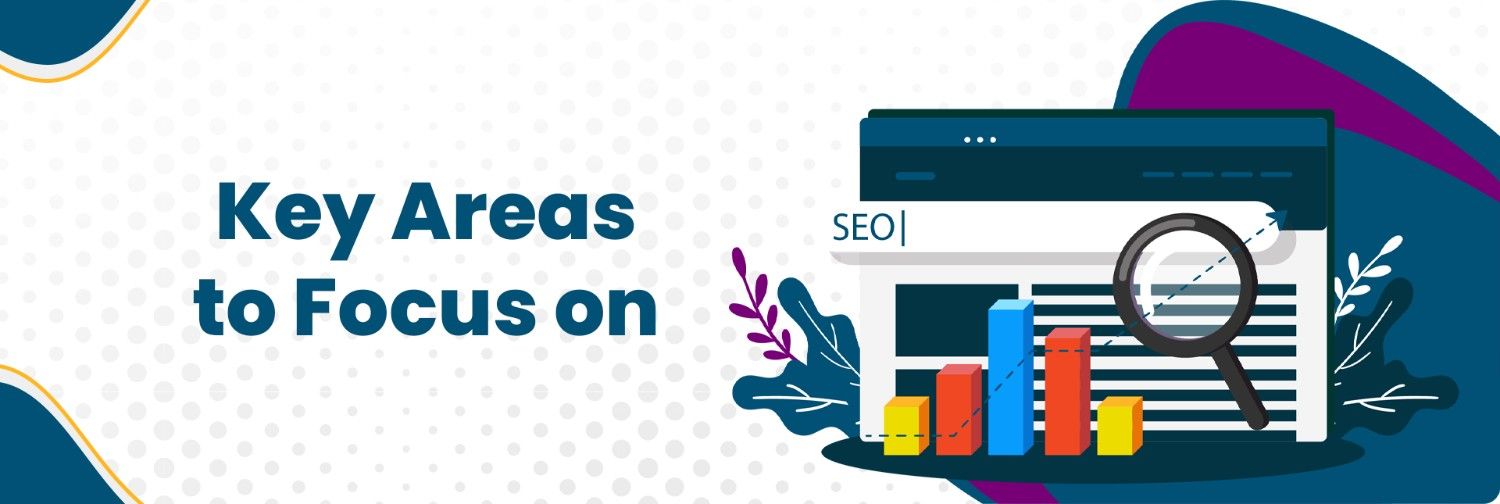In the dynamic world of digital marketing, SEO remains a cornerstone for driving organic traffic and improving online visibility. However, as the landscape evolves, knowing where to invest your time and resources becomes crucial for achieving optimal results. This article explores key areas to focus on in your SEO strategy, emphasizing enhanced conversions, enhanced ad attributions, and leveraging Meta ads and Facebook campaigns effectively.
Enhancing Conversions: The Ultimate Goal
When it comes to SEO, enhanced conversions should be a primary focus. Conversion optimization involves refining your website and content to encourage users to take desired actions, such as making a purchase, signing up for a newsletter, or filling out a contact form. Investing in conversion rate optimization (CRO) ensures that your SEO efforts translate into tangible business results.
- Optimize Landing Pages: Ensure that your landing pages are designed to capture user attention and guide them through the conversion process. This includes having clear calls to action, relevant content, and a seamless user experience.
- Improve Site Speed: A fast-loading website enhances user experience and reduces bounce rates. Optimize images, leverage browser caching, and use content delivery networks (CDNs) to ensure your site loads quickly.
- A/B Testing: Conduct A/B tests to determine which elements of your site are most effective in driving conversions. This could include testing different headlines, call-to-action buttons, or page layouts.
- User Experience (UX) Design: Invest in UX design to create a user-friendly site that meets the needs of your audience. A well-designed site with intuitive navigation and responsive design can significantly impact conversion rates.
- Analytics and Insights: Use tools like Google Analytics to track user behavior and identify areas for improvement. Analyzing data can help you understand how users interact with your site and what changes can enhance conversions.
Enhanced Ad Attributions: Understanding the Impact
Enhanced ad attributions play a crucial role in optimizing your digital marketing strategy. Accurate attribution helps you understand the impact of your various marketing efforts, allowing you to allocate resources more effectively.
- Multi-Touch Attribution: Implement multi-touch attribution models to gain a comprehensive view of how different touchpoints contribute to conversions. This approach helps you understand the value of each interaction along the customer journey.
- Cross-Channel Tracking: Invest in tools that provide cross-channel tracking to see how different marketing channels work together. This enables you to optimize your strategy across platforms and make data-driven decisions.
- Conversion Tracking: Set up conversion tracking to measure the effectiveness of your ad campaigns. This includes tracking key metrics such as clicks, impressions, and conversions to assess the performance of your ads.
- Adjust Budgets and Bids: Use attribution data to adjust your ad budgets and bids based on performance. Allocate more resources to high-performing channels and optimize your spending for better results.
- Regular Reporting: Create regular reports to analyze ad performance and attribution data. This helps in identifying trends, understanding which channels are most effective, and making informed decisions.
Leveraging Meta Ads and Facebook Campaigns
Meta ads and Facebook campaigns are powerful tools for reaching and engaging your target audience. Investing time and resources in these platforms can significantly boost your SEO and overall marketing efforts.
- Targeted Advertising: Meta ads and Facebook campaigns allow for highly targeted advertising. Use demographic, interest-based, and behavioral targeting to reach the right audience with relevant messages.
- Ad Formats: Experiment with different ad formats such as carousel ads, video ads, and sponsored posts to see which resonates best with your audience. Each format offers unique opportunities for engagement and conversion.
- Retargeting Campaigns: Implement retargeting campaigns to re-engage users who have previously interacted with your site. Retargeting helps remind potential customers of your products or services and encourages them to return.
- Custom Audiences: Create custom audiences based on user behavior and interactions. This allows you to tailor your campaigns to specific segments, increasing relevance and effectiveness.
- Performance Analysis: Regularly analyze the performance of your Meta ads and Facebook campaigns using analytics tools. Monitor metrics such as click-through rates, conversion rates, and return on ad spend to optimize your campaigns.
- A/B Testing: Use A/B testing to compare different ad creatives, audiences, and messaging. This helps you identify what works best and refine your campaigns for better performance.
Conclusion
Investing time and resources in SEO involves focusing on areas that drive meaningful results. Enhancing conversions through optimized landing pages, improved site speed, and effective UX design is essential for turning visitors into customers. Accurate enhanced ad attributions provide valuable insights into the impact of your marketing efforts, allowing for more strategic resource allocation. Leveraging Meta ads and Facebook campaigns effectively can amplify your reach and engagement, further supporting your SEO goals. By concentrating on these key areas, you can build a robust SEO strategy that maximizes your digital marketing efforts and delivers significant business outcomes.







